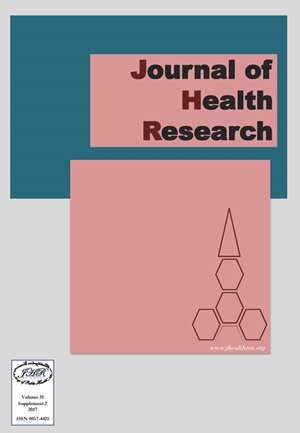Factors Affecting the Emotional Intelligence of Primary School (Prathomsuksa 3) Students in Muang District, Nonthaburi Province, Thailand
Keywords:
Emotional intelligence, Primary school, Students, ThailandAbstract
Background: In 2016 the average EQ level was about 45.12 (the standard level of EQ was changed from 140 to 50). Therefore the problem of the EQ of students has increased dramatically. Not only that, in 2009, the children living with both their parents decreased from 62%. This study aimed to: 1) study the EQ level; 2) assess the socio-demographics, time spending, and type of parenting, school environment and EQ level; 3) identify any associations among socio-demographic, time spending, type of parenting and school environment that affect the EQ level.
Methods: This research study was a cross-sectional study. Participants comprised 410 parents of Prathomsuksa 3 students. Instrument was a questionnaire that comprised four parts (Part 1: Socio-demographic factors and time spending; Part 2: Type of parenting; Part 3: School environment; Part 4: The EQ assessment), by multistage sampling technique with purposive sampling by criteria selection at Nonthaburi province to choosing four schools, the participants were surveyed during June-July 2017. Descriptive analysis and Fisher’s exact test were used to analyze the data.
Results: Regarding the socio-demographic factors, 350 students (85.4%) had a GPA more than 3.51 and the most common income for families was between 25,001 - 40,000 baht (314 families, or 76.6%). Concerning the time spending, parents who spent 4 or more than 4 hours per day stood at 258 students (62.7%) on workdays and 268 students (65.4%) on weekends respectively. Finally, the democratic style was the most common style (358 families, or 87.3%).
Conclusion: The total EQ level followed the same direction with most students having an EQ at the normal level (389 students, or 94.9%). Regarding the associations between socio-demographic factors (GPA and family income), time spending, type of parenting and EQ level, there were statistically significant differences (p<0.05). However, there was no statistically significant difference between school environment and EQ level (p>0.05).






